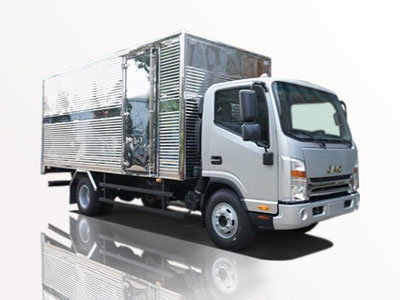Water trucks are essential in various industries, including construction, agriculture, and municipal services. With an array of sizes available, choosing the right one can be challenging. This article will delve into different water truck sizes, their applications, advantages, and much more. By the end of this guide, you’ll have a solid understanding of how to select the perfect water truck to meet your specific needs.
The Importance of Choosing the Right Water Truck Size
The size of a water truck can significantly impact its efficiency and effectiveness for specific tasks. Whether you’re looking to water crops, suppress dust on roads, or provide water for fire prevention, choosing the right size is crucial. Here’s why:
- Efficiency: The right size can reduce the number of trips needed, save time, and enhance productivity.
- Cost-Effectiveness: Correct sizing can lead to lower operating costs and less wear and tear on the vehicle.
- Adaptability: Different projects may require various sizes for optimal effectiveness.
Common Water Truck Sizes
Water trucks come in various sizes, generally measured by their tank capacity. The most common capacities include:
- 500-1,000 gallons
- 1,000-3,000 gallons
- 3,000-5,000 gallons
- 5,000-10,000 gallons
- 10,000+ gallons
Small Water Trucks (500-1,000 Gallons)
Small water trucks are typically used for minor landscaping projects, small construction sites, or residential applications.
Advantages of Small Water Trucks
- Easy to maneuver in tight spaces
- Lower operating costs
- Ideal for localized applications
Best Uses
Examples include:
- Residential lawn watering
- Dust control in small areas
- Emergency water supply
Medium Water Trucks (1,000-3,000 Gallons)
Medium-sized trucks strike a balance between capacity and maneuverability.
Advantages of Medium Water Trucks
- Versatile for a variety of applications
- More fuel-efficient than larger trucks
- Can service larger areas than small trucks
Best Uses
Applications for medium trucks include:
- Construction site water supply
- Dust control on larger roads
- Agricultural irrigation for small farms
Large Water Trucks (3,000-5,000 Gallons)
Large water trucks are often used for heavy-duty tasks in construction and firefighting.
Advantages of Large Water Trucks
- High capacity for extensive work areas
- Efficient for long-distance hauling
- Can be equipped with additional features like pumps
Best Uses
Common uses include:
- Dust suppression on construction sites
- Emergency water supply for firefighting
- Water delivery for large landscaping projects
Extra-Large Water Trucks (5,000-10,000 Gallons)
Extra-large water trucks are built for expansive industrial tasks.
Advantages of Extra-Large Water Trucks
- Ideal for large construction and mining sites
- High efficiency for large water needs
- Less frequent refueling required
Best Uses
Applications include:
- Watering large agricultural fields
- Laying down dust on highways and heavy traffic areas
- Supporting fire suppression teams in extensive wildfires
Factors to Consider When Choosing a Water Truck Size
Project Scope
The scale and scope of your project greatly influence the size of the water truck you need. Larger projects usually necessitate bigger vehicles to fulfill water demands efficiently.
Maneuverability
Consider the terrain and space constraints of your projects. Smaller trucks are preferable for tight spaces, while larger trucks excel in open areas.
Transport Costs
Total transportation costs can vary by size. Larger trucks may incur more fuel costs but can deliver more water per trip.
Environmental Impact
Efficiency impacts the environmental footprint. Smaller trucks may have lower emissions, making them suitable for local projects.
Practical Examples of Water Truck Sizes in Action
| Size | Application | Example Scenario |
|---|---|---|
| 500-1,000 Gallons | Residential Watering | Watering a small lawn in a neighborhood |
| 1,000-3,000 Gallons | Medium Construction | Watering a mid-sized construction project |
| 3,000-5,000 Gallons | Large Construction | Dust control on a highway construction site |
| 5,000-10,000 Gallons | Agricultural Irrigation | Irrigating large fields for crops |
Water Truck Features to Consider
Pumps and Spray Systems
The onboard pump system is essential for effective water distribution. Various spray patterns can adapt to different applications.
Tank Material
Tanks can be made from different materials such as aluminum or stainless steel, which affects their durability and weight.
Access and Design
Ensure that the truck has easy access for filling and cleaning. Consider trucks with high-volume openings for faster filling.
Wheel Configuration
The number of wheels impacts stability and load-bearing capacity. More wheels can enhance efficiency in transporting larger loads.
Cost Factors for Water Trucks
The cost of water trucks varies significantly based on size, features, and brand. Here are some cost considerations:
Initial Purchase Price
Smaller trucks generally cost less, whereas large ones can be significantly more expensive due to their size and features.
Maintenance Costs
Regular maintenance is crucial for extending the lifespan of the truck. Larger trucks may incur higher maintenance expenses.
Fuel Efficiency
Fuel consumption varies by size. Smaller trucks often are more fuel-efficient, making them a better option for local work.
FAQs About Water Truck Sizes
What size water truck is best for residential use?
For residential use, a small water truck with a capacity of 500-1,000 gallons is usually sufficient for watering lawns and gardens.
Can I use a large water truck for small jobs?
Yes, but it may be inefficient in terms of maneuverability and fuel consumption. Smaller trucks are typically better suited for small jobs.
How do I know what size water truck I need for my project?
Consider the scope of your project, the area you need to cover, and how frequently you’ll need to refill the truck.
Are there regulatory requirements for water trucks?
Yes, some regions may have specific regulations regarding water usage and vehicle standards. Always check local laws before operating a water truck.
What is the most common water truck size used in construction?
Medium to large water trucks (1,000-5,000 gallons) are commonly used in construction for dust suppression and water supply.
How often should I maintain my water truck?
Regular maintenance every 3-6 months is recommended, but you should also keep an eye on the specific needs of your vehicle.





